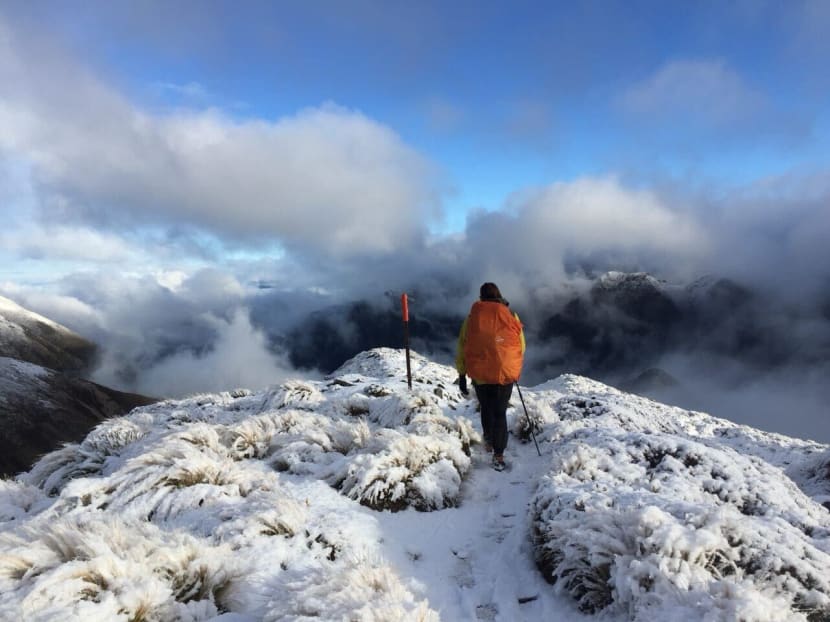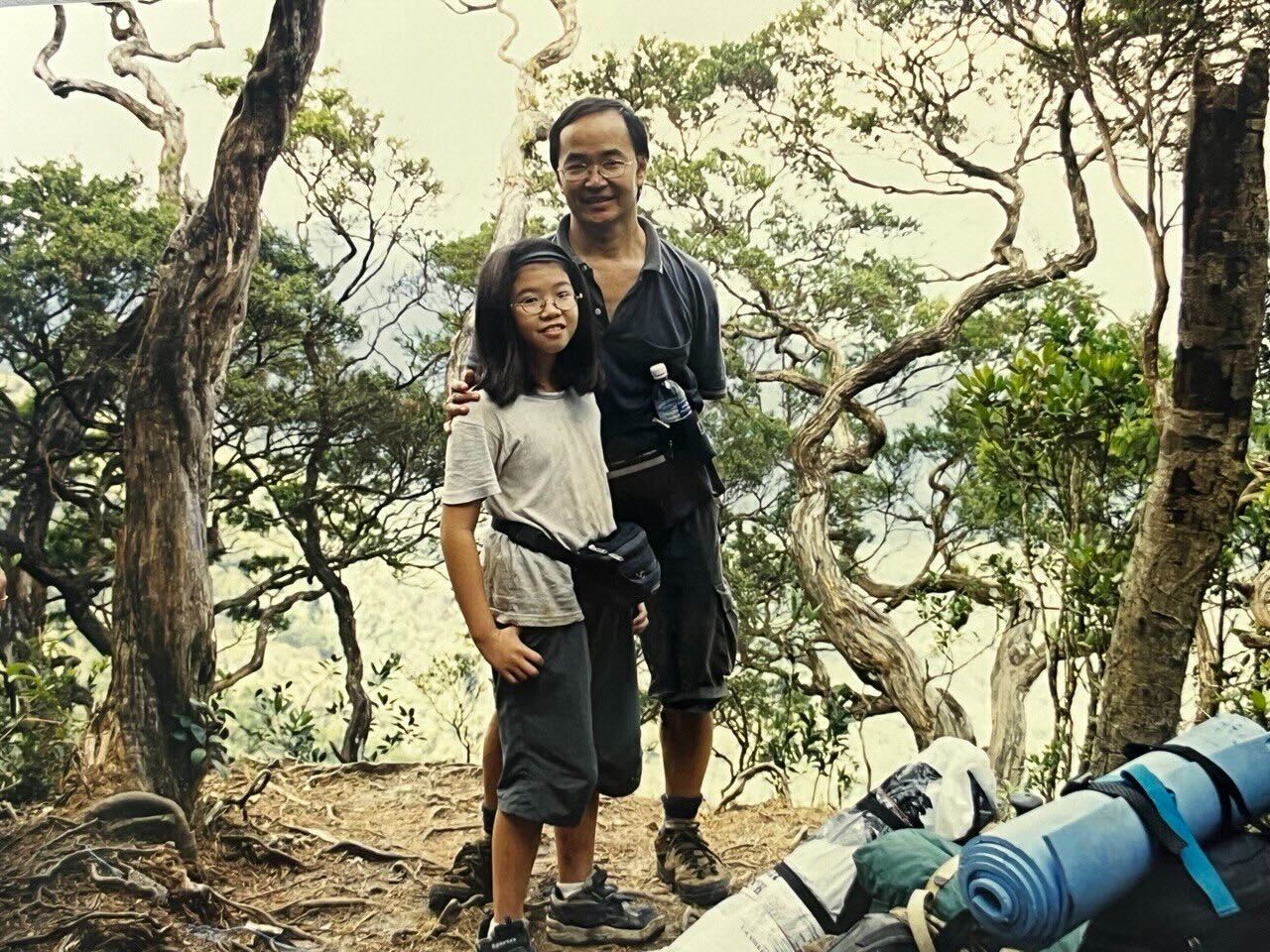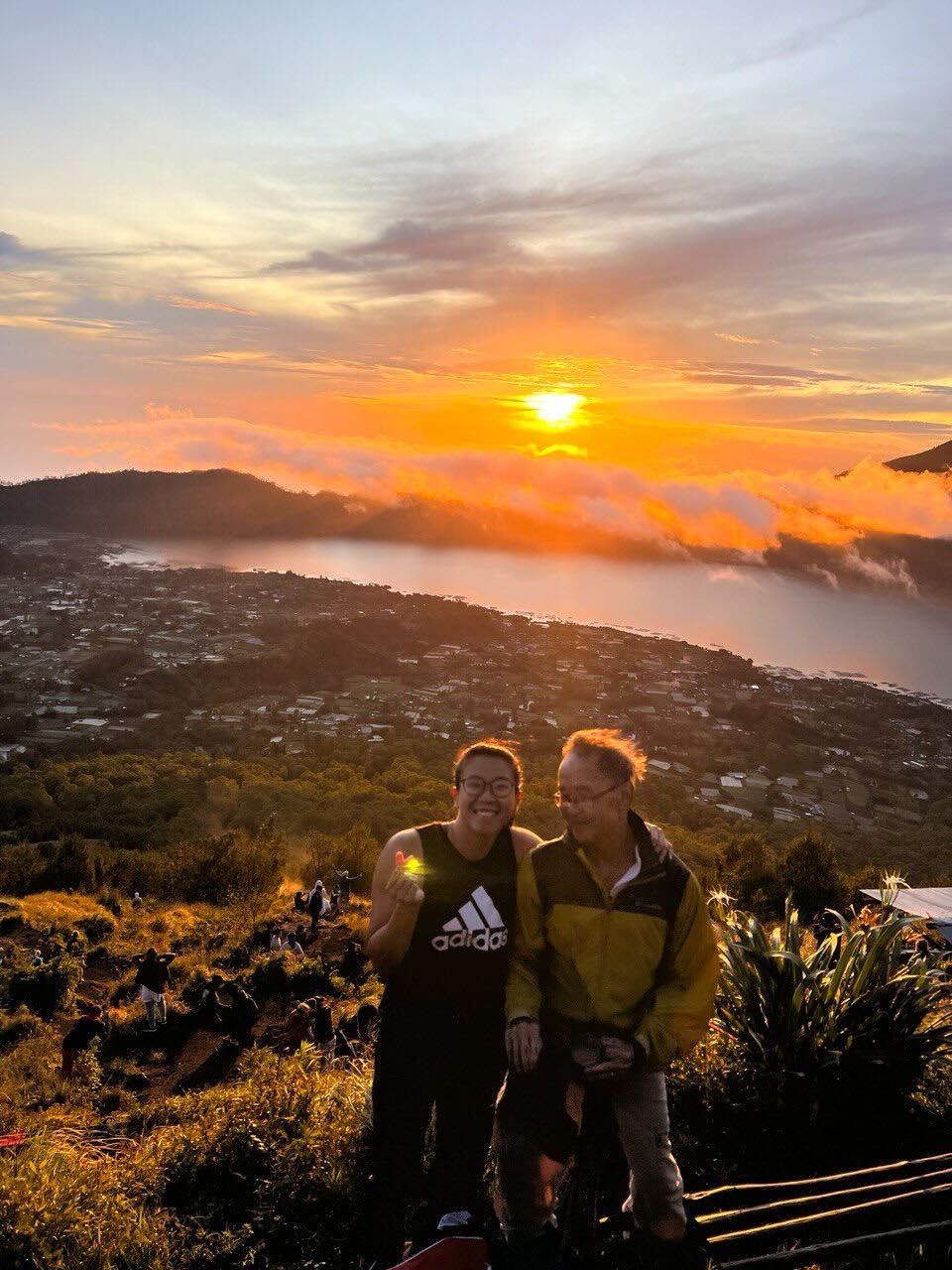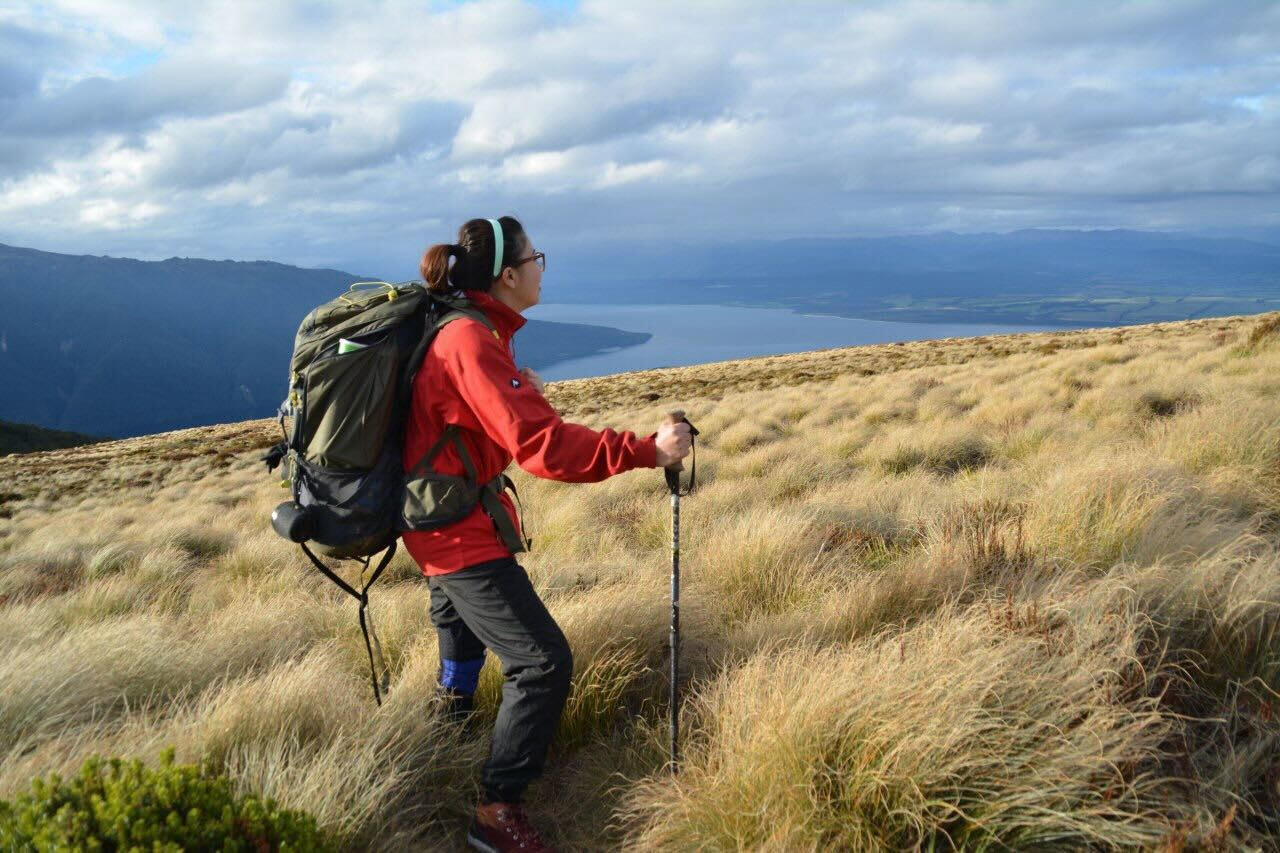Commentary: On a 4-year-old boy's Everest Base Camp bid, and where to draw the line between risk and reward
Having been on various mountaineering and adventure expeditions from an early age, here’s my take.

The author has been doing mountaineering and hiking expeditions since an early age, beginning with the 4,095m-high Mount Kinabalu at the age of six. In this 2018 photo, she navigates the Kepler Trek in New Zealand.

This audio is AI-generated.
At six years old, Annabelle Tee climbed up the 4,095m-high Mount Kinabalu in a railing thunderstorm. Having been on various mountaineering and adventure expeditions from an early age, here's her take on whether four-year-old Atlas Wong's failed attempt to reach Everest Base Camp was a cautionary tale of bad parenting, or an inspiring example of teaching kids to push their boundaries.
Last week, I received an article from a friend about a four-year-old Singaporean boy attempting to reach Everest Base Camp.
Atlas Wong set out from Lukla village on May 20. Nine days in, just six hours from the camp, his parents Rakcent and Carol cut the trek short due to symptoms of acute mountain sickness and “worrying” oxygen levels from the boy.
A couple of innocent Instagram posts later, an Internet storm quickly gathered. Rakcent and Carol have since come under fire from many netizens, with some even questioning whether the two are qualified to be parents.
When it comes to taking kids on outdoor adventures, where do we draw the line between challenging boundaries and just pushing it?
Having been on various mountaineering and adventure expeditions from an early age, here’s my take.
BEING A WILD CHILD
My dad, Peter Tee, was a Singtel programmer during the week and an adventure guide on the weekends.
In 1998, he brought me on my first big hiking trip. At six years old, I climbed up the 4,095m-high Mount Kinabalu in a railing thunderstorm.
Even with a 10kg backpack weighing me down, my small frame almost got flung off the mountain by the torrential winds. My mother begged and begged my father to ask the porters to carry me.
Finally, he relented. But not till after I’d trudged on for another two hours.
Back in school, other kids talked about their family trips to onsens in Japan or beaches in Thailand. When I shared about my mountaineering expedition, none of my classmates believed me. They thought I was making things up.
There was no one my age who could relate. At least not in Singapore.

As I grew, so did my skill levels and my hardiness. By 11, I was doing solo hikes across the icy Annapurna and Himalayan ranges in FBT shorts.
I loved the freedom, being able to do what other kids my age couldn’t do, meeting all sorts of people along the way. I loved seeing mountains towering over me, feeling so small and in awe of our world.
BONDING WITH PAPA
Most of these trips, I took with my dad.
I loved watching sunsets with him, seeing him joke around with his friends, listening to him talk about different birds and plants, observing carefully as he showed me how to pitch a tent, and cooking pots of Maggi Mee on our campfire together with shooting stars flying over our heads.
I loved the bond we had. It was special.
Truthfully, these expeditions were never a bed of roses.
When I was seven, I nearly fell to my death off a 30m vertical rock face. I’m writing this today only because the uncle in front of me happened to turn around in time, grab me by my shirt and yank me to safety.
My father too had his fair share of close calls. His highlights include being bitten by a poisonous sea snake (the venom missing his heart by 1 cm), medevaced after a ski accident, frost-bitten and stranded on top of a mountain in a snowstorm, hurled down violent rapids for two hours non-stop.
Telling my friends these stories, they always gave me the same look. The look that says: “Are they crazy?”
Thinking about little Atlas, I can’t help but ask myself too: Why did we keep putting ourselves in these positions?
FUN FAMILY ACTIVITY, OR IRRESPONSIBLE DANGER?
At a height of 5,400m, the Everest Base Camp is a considerable feat even for the most avid of hikers. Many spend months hopping from mountain to mountain of increasing altitudes just to get there.
From what I’ve read, Rakcent and Carol are clearly experienced hikers — but the highest trek they’d done with Atlas was a 3,000m-high mountain in the Austrian Alps, just over half the height of EBC.
The whole family also fell sick during the one-week ascent: Rakcent with a lower respiratory tract infection, Carol and Atlas with food poisoning.
They opted for a day’s rest before the ascent, but all things considered, many said the parents should’ve decided upon a longer rest or called the whole thing off then and there.
If people think Rakcent and Carol unfit to bring up a child, I wondered, did my dad bring me up the “wrong” way too?

CLIMBING LIFE’S MOUNTAINS
I’ll never forget doing the Annapurna Circuit in Nepal — a demanding trek for which the shortest route covers 160km and requires at least 12 days to complete.
At 13 years old, I was on my seventh day into the trek, staring up at the thousands and thousands of steps still ahead of me. My legs were burning, back aching, muscles on fire.
Every nerve in my body was telling me to quit. But I couldn’t turn back.
All I could do was to focus on “one more step”. And the next one. And the next one.
When I finally reached the last rest station, a strange peace settled over me. It was like no other feeling I’d ever had before: A pure exhilaration and satisfaction, knowing I achieved something I never thought I’d be able to do.
I used that same focus to get me through my O- and A-level exams. “Just one more question,” I’d tell myself. “One more chapter. One more paper.”
I knew how to break it down step by step, so that nothing seemed too unsurmountable or impossible.
I knew I was tougher than the rocks of the Annapurna Circuit — and surely tougher than anything found in a classroom or exam hall.
As an adult, you’d think I’d be sick of rocks by now. But on the contrary, I love them. I love climbing them, touching them, looking at them, collecting them.
Upon buying my first home this year, I even created an entire wall with a featured wallpaper that feels just like rocks.
My friends laugh at me for my strange fixation. But now and then, I touch my special rock wall and remember my adventures.
As we approach the one-year anniversary of his death, I remember my dad, and all the lessons he taught me in our countless expeditions together about courage, determination, and how to keep pushing.

NOT A CAUTIONARY TALE, BUT A TEACHING ONE
As a full-time swimming coach, I interact with dozens of kids a week.
I understand well why they’re called the “snowflake generation”. Ask them to swim four laps, and they scream and shout as if the world were about to end.
What you’re exposed to as a child impacts you greatly for the rest of your life.
To climb a mountain, you need strength, training, nutrition, good immunity, the right equipment, and stamina. But more than that, you need willpower and a heart for adventure.
Sadly, we seem to see these less and less in young children in Singapore nowadays.
Many people will say what the Wong family did was dangerous. They’re not wrong.
But mistakes and mishaps are part and parcel of life.
It doesn’t mean we should never attempt anything demanding or difficult, or seek out experiences outside the norm. What’s important is how we come back wiser and stronger.
Every kid deserves a parent like my dad, who encourages them to explore new horizons, engages their curiosity, and inspires them in times of hardship and tribulation.
Of course, it’s vital to take proper measures to ensure safety and care. But it wouldn’t hurt for more parents to be more like Atlas’: Teach kids to be open to the new and unknown, and to push the boundaries of what they think they’re capable of.
For now, I’ll start small with my own students in the pool: “Just one more lap.”
ABOUT THE AUTHOR:
Annabelle Tee, 32, is a swimming coach specialising in water safety for young children.








